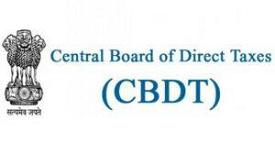Current Affairs June 2019 - Business & Economy
1 - World bank retains growth forecast for Indian economy at 7.5%

The World Bank retained its forecast of India's growth rate at 7.5% for the current financial Year 2019/20.
In its Global Economic Prospects report, the World Bank also mentioned that growth rate is expected to remain the same for the next two fiscals.
2 - JLR inks pact with BMW to develop next-gen electric vehicles

Tata Motors-owned Jaguar Land Rover has joined hands with BMW to develop next-generation electric drive systems.
The two partners will invest jointly in research and development, engineering and procurement with an aim to provide the necessary economies of scale to support increased consumer adoption of electric vehicles.
3 - Repo rate reduced to 5.75%: RBI’s 2nd bi-monthly monetary policy statement

The 2nd Bi-Monthly monetary policy statement has been released.
On the basis of an assessment of the current and evolving macroeconomic situation, the Monetary Policy Committee (MPC) at its meeting decided to −
Reduce the policy repo rate under the liquidity adjustment facility (LAF) by 25 basis points to 5.75% from 6.00% with immediate effect, and
Lower the economic growth forecast for the current fiscal to 7% due to slowdown in domestic activities and escalation in global trade war.
4 - Dell emerges as the most trusted brand in India in 2019: TRA

According to a report released by brand analytics firm TRA Research, “Dell” has emerged as the most trusted brand in India in 2019. With 31% Brand Trust Index (BTI) difference from Dell, auto brand Jeep makes a dramatic entry in the second spot.
LIC and Amazon are ranked on the third and fourth spots and Apple iPhone emerged as India’s fifth most trusted brand.
5 - Rating agencies should disclose the probability of defaults: SEBI

According to a recent circular by SEBI, rating companies will now create a uniform probability of default benchmark for each rating category on their website, for one-year, two-year and three-year cumulative default rates, both for the short term and long term.
Rating agencies also have to disclose factors that could potentially impact the rating of the instruments and it also include an assessment of financials.
6 - RBI to infuse Rs 12,500 crore into the financial system through bond purchase

The Reserve Bank of India will infuse Rs 12,500 crore into the financial system through bond purchases under the Open Market Operation (OMO).
The RBI uses open market operations (OMO) for injecting liquidity into the system through the purchase of government bonds (G-Sec).
7 - Facebook launches cryptocurrency "Libra"

Facebook has launched a digital currency called Libra that will allow its billions of users to make financial transactions across the globe.
Libra is being touted as a means to connect people who do not have access to traditional banking platforms.
Technology to make transactions with Libra will be available as a standalone app as well as on WhatsApp and Facebook Messenger platforms as early as 2020.
8 - Fitch cuts India growth forecast to 6.6% for 2019-20 fiscal

In its latest Global Economic Outlook, the global rating agency Fitch lowers India's growth forecast from 6.8% to 6.6% for the current fiscal, as manufacturing and agriculture sectors showed signs of slowing down over the past year.
Fitch also retained its GDP growth forecast for the next fiscal (2020-21) at 7.1% and 7.0% for 2021-22.
9 - EAC-PM releases analysis on robustness of India’s GDP estimation methodology

The Economic Advisory Council to the Prime Minister releases a detailed note titled ‘GDP estimation in India- Perspectives and Facts’.
The new methodology that uses 2011-12 as the base year includes two major improvements −
Incorporation of MCA21 database.
Incorporation of the Recommendations of System of National Accounts (SNA), 2008.
This change was in line with other countries that have changed their methodologies in line with System of National Accounts (SNA) 2008 and revised their respective GDP figures.
10 - Government to set up 51 incubators for aspiring entrepreneurs

The GoI will set up 51 new incubators for startups in the information and communications technology space across India as part of its Technology Incubation and Development of Entrepreneurs (Tide) 2.0 scheme.
Tide 2.0 will offer financial and technical support to incubators supporting ICT startups that are involving usage of deep technologies including artificial intelligence, blockchain, robotics, and internet of things in “pre identified areas of societal relevance".
11 - 249 startups given financial support with FFS: DPIIT

According to Department for Promotion of Industry and Internal Trade, Fund of Funds for Startups have provided financial support to 249 startups in last 3 years.
The DPIIT is the monitoring agency and Small Industries Development Bank of India is the operating agency for FFS.
iii. FFS contributes to the corpus of SEBI registered Alternative Investment Funds (AIFs).
iv. The AIFs in turn have to invest at least twice the contribution under FFS in startups.
12 - Group of Secretaries constituted on e-Commerce

A Standing Group of Secretaries (GoS) has been constituted on e-Commerce by Ministry of Commerce and Industry.
GoS under the Chairmanship of Secretary, Department for Promotion of Industry and Internal Trade (DPIIT) is constituted to ensure inter-ministerial/inter-departmental coordination on resolving issues, cutting across Ministries and Departments of Government of India in e-Commerce.
13 - Tech Mahindra signs contract with Airbus

IT firm Tech Mahindra has signed a multi-year contract with Airbus for cabin and cargo design engineering.
The contract aims to capitalize on the specialized skills and competencies in the growing cabin engineering business over the next few years.
14 - SEBI sets up panel to review margins on derivatives

NSE Clearing Ltd. will head the panel set up by SEBI to review margins on derivatives. The panel will submit its recommendations to the Secondary Market Advisory Committee.
These margins on the derivatives segment are pushing up the cost of trading while not managing risk in the most efficient manner.
15 - RBI allows ARCs to buy financial assets from peers

The Reserve Bank of India has allowed Asset Reconstruction Companies (ARCs) to buy financial assets from other ARCs. The transactions must be settled in cash between the 2 entities.
In view of amendment to the Securitisation and Reconstruction of Financial Assets and Enforcement of Securities Interest Act, 2002, it has been decided to permit ARCs to acquire financial assets from other ARCs.
16 - RBI relaxes leverage ratio for banks

The Reserve Bank relaxed the leverage ratio (LR) to 4% for Domestic Systemically Important Banks (DSIBs) and 3.5% for other banks. This has been done to help them boost their lending activities.
The reduced leverage ratio will be effective from the quarter commencing October 1, 2019.
The leverage ratio, as defined under Basel-III norms, is Tier-I capital as a percentage of the bank's exposures.
17 - CBDT directs I-T dept. to share info of loan defaulters with banks

The Central Board of Direct Taxes has directed the Income Tax Department to share in "public interest" the details of assets and accounts of all such loan defaulters whose details are requested by the public sector banks.
The policy move is aimed to tighten the noose on such entities and extract recovery of public money.
18 - RBI Deputy Governor Viral Acharya resigns

Reserve Bank of India’s (RBI) Deputy Governor Viral Acharya has quit six months before the scheduled end of his term. He had joined RBI on January 23, 2017.
Viral Acharya was in charge of the Financial Stability Unit, Monetary Policy Department, Department of Economic and Policy Research, Financial Markets Operation Department, Financial Market Regulation Department, among others at the RBI.



















